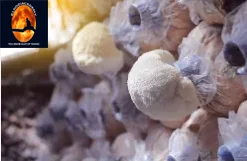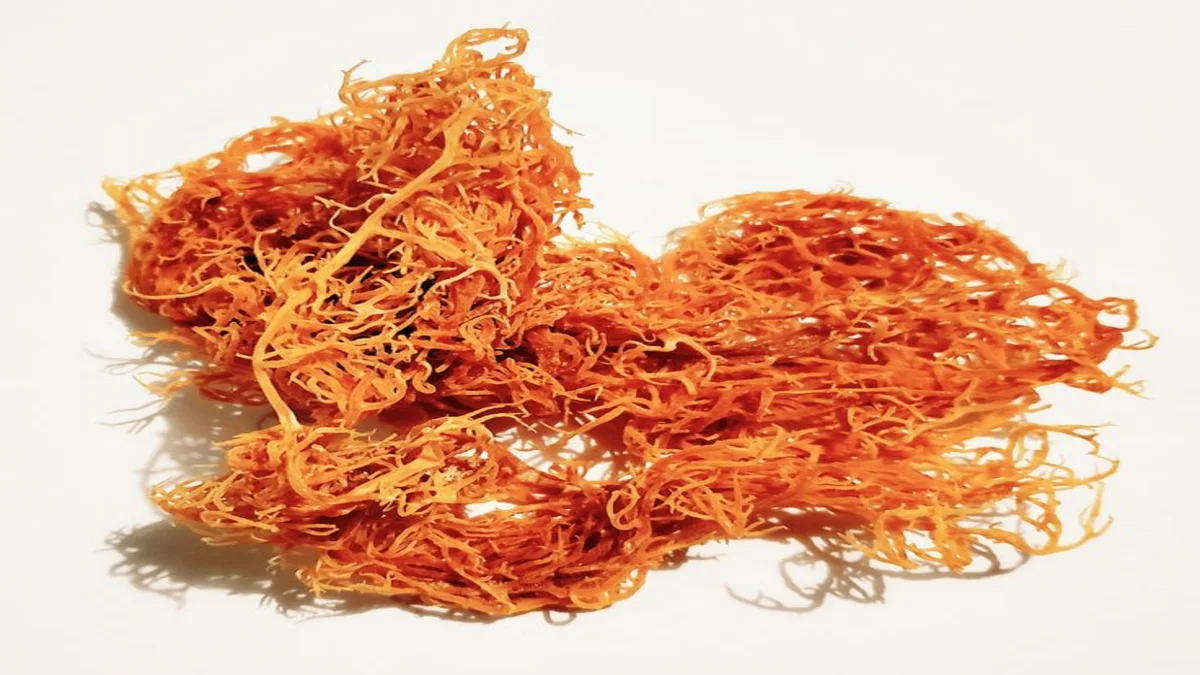What is the lion’s mane mushroom?
The origin of the lion’s mane mushroom (scientific name: Hericium Erinaceus) is North America, Europe, and Asia. It is an edible fungus.
Its long spines that form a cover like fluff or hairs characterize it. The mushroom pulp grows in a semi-spherical shape, and its color gradually changes over time to yellowish-brown, and we should note that some find its flavor similar to the flavor of some types of seafood such as crab, and lobster and that it contains substances that have a vital effect that is beneficial to the body characterizes this mushroom; Especially for the brain, heart, and intestines.
Benefits of lion’s mane mushroom

Benefits of lion’s mane according to effectiveness Insufficient Evidence
There are many studies that have examined the benefits of the lion’s mane , but there is not enough evidence for its effectiveness in this, and we mention:
Improving cognitive functions in the elderly
A small study published in the Journal of Phytotherapy Research in 2009 and conducted on 30 patients with mild cognitive impairment of the elderly of both sexes at 50 to 80 years, showed that the consumption of tablets containing dried lion’s mane powder may improve indicators related to cognitive functions in the elderly, which may ease their mild cognitive impairment.
Reducing the risk of gastritis
A laboratory study published in the International Journal of Biological Macromolecules in 2015 showed that the ethanolic extract of polysaccharides found in the green vegetable part of the lion’s mane contains polysaccharides, inhibits the growth of cells associated with chronic atrophic gastritis and stimulates her death.
Reducing symptoms of anxiety
A small study conducted on 30 women, and published in the Journal of Biomedical Research in 2010, showed that the lion’s mane may contribute to reducing symptoms of anxiety, depression, and irritability, and this effect is because of its content of nerve growth factor
Helping reduce blood sugar and fat levels
A preliminary study conducted on diabetic mice, and published in the BMC Complementary Medicine and Therapies in 2013, showed that the aqueous extract of the lion’s mane may help reduce sugar and fat levels in the body and raise the level of insulin.
The consumption of lion’s mane mushroom by diabetic patients may reduce the level of blood sugar and its consumption with drugs that lower blood sugar may reduce the level of blood sugar significantly, and therefore it is important in this case to monitor the level of blood sugar.
Sugar, the extent of symptoms of hypoglycemia, and consulting a doctor before consuming these drugs, were clarified in the drug interactions section.
Reducing stomach ulcers
A preliminary study conducted on mice with stomach ulcers, and published in the International Journal of Medicinal Mushrooms in 2015, showed that an extract of lion’s mane , which contains polysaccharides, may reduce the area of the affected area in the stomach.
Reducing the risk of cancer
A laboratory study published in the Journal of Ethnopharmacology in 2014 showed that the extract of the lion’s mane may have properties that help reduce the risk of some cancers. Such as liver cancer, colon cancer, and stomach cancer.
Other benefits:
There are some other uses for lion’s mane , but we still need more studies to confirm its effectiveness in this, and they are:
- Alleviation of dementia.
- Reducing the risk of developing multiple sclerosis.
- Alleviation of Parkinson’s disease.
- Reducing obesity.
Scientific studies on the benefits of lion’s mane mushroom
- One type of preliminary study in mice with inflammatory bowel disease, published in the International Journal of Medicinal Mushrooms in 2016, showed that the ethanolic extract of lion’s mane has properties that may contribute to the relief of IBD.
- It improved the weight and length of the colon, reduced the level of bleeding* in it, and reduced the level of inflammatory markers in the colon tissues, such as; Tumor necrosis factor-alpha, one type of interleukins, and others.
- A study on mice published by Food & Function in 2017 showed that the extract of polysaccharides in lion’s mane may contribute to enhancing the health of the immune system by regulating immune activity in the intestinal mucosa, including; Improving cellular immunity, humoral immunity, or immune response that activates antibodies and others, as well as increasing the activity of macrophages.
- A laboratory study published in Phytomedicine in 2010 showed that the ethanolic extract of the lion’s mane has properties that reduce platelet aggregation by inhibiting collagen receptors, which stimulate this accumulation.
Damage to the lion’s mane mushroom

The safety degree of the lion’s mane
It is possible that it is safe to consume lion’s mane in medicinal quantities for a period of up to 16 weeks, as it may cause the emergence of some mild side effects.
Such as having an upset stomach, but there is not enough information so far about the safety of consuming these quantities for a period longer than that, and there is also insufficient information about the safety of its consumption for pregnant and lactating women, so it is preferable to avoid it during these two periods.
Disadvantages of using lion’s mane mushroom Lion’s mane
Mushrooms can affect many health conditions, which must be taken care of when consuming, including:
- People with bleeding disorders
- Lion’s mane may contribute to reducing blood clotting, which increases the chances of bruising and bleeding in people with bleeding disorders, and there is no proven information about this effect in humans.
- Diabetics
- Lion’s mane may reduce the level of blood sugar, so it is better for diabetics to monitor their sugar level, as well as the extent of hypoglycemia symptoms if this mushroom is eaten.
- People who will undergo surgeries
- According to the properties of the lion’s mane in reducing blood clotting, its consumption may contribute to an increase in the rate of bleeding during and after the surgery, so it is preferable to stop eating it at least two weeks before the scheduled operation.
Drug interactions with lion’s mane
There are some medicines that may interfere with the lion’s mane to a moderate degree, and therefore it is necessary to consult a doctor before consuming them together, and we mention:
- Blood sugar antagonists
- Lion’s mane is likely to reduce the level of sugar in the blood, so taking it with sugar-lowering drugs may increase the drop in blood sugar significantly, and blood sugar levels should be monitored, as there may be a need To change the dose of diabetes medications under the supervision of a specialist doctor, such as Rosiglitazone
- Anticoagulants
- As we mentioned previously, lion’s mane may reduce blood clotting, which may interfere with the effect of fluidized drugs. Therefore, consuming them together may slow blood clotting, bruising, and bleeding. We mention some of the fluidized drugs; Clopidogrel.
How to use lion’s mane mushroom

can be consumed raw, cooked, dried, or steeped as tea, besides that it is available in stores and on the Internet as food supplements as capsules, liquid, tablets, or powder, but its dosage varies from one form to another, so The instructions for consumption on the product label must be followed with caution, and it is recommended to consult a doctor before consuming any type of food supplement.
Benefits of other types of mushrooms
There are many types of mushrooms; Where there are at least 14,000 species, but only half of these species are edible; Mushrooms are free of fat and cholesterol, and a little in sodium and calories, besides being rich in fiber, vitamins, and minerals, but we should note that the nutritional value of mushrooms varies from one type to another.
SUMMARY
Many health advantages of the lion’s mane mushroom and its extract have been demonstrated.
Lion’s mane may help repair nerve damage, lessen moderate symptoms of anxiety and sadness, and guard against dementia, according to research.
We have also shown it to reduce the risk of heart disease, cancer, ulcers, and diabetes in animals. It also possesses potent anti-inflammatory, antioxidant, and immune-boosting properties.
Although the current research is encouraging, more human studies are required to create useful lion’s mane mushroom health applications.
FAQ
10 Surprising Omega-3 Benefits
food for the brain-promote your concentration
7 best Home Remedies for Black Eyes





